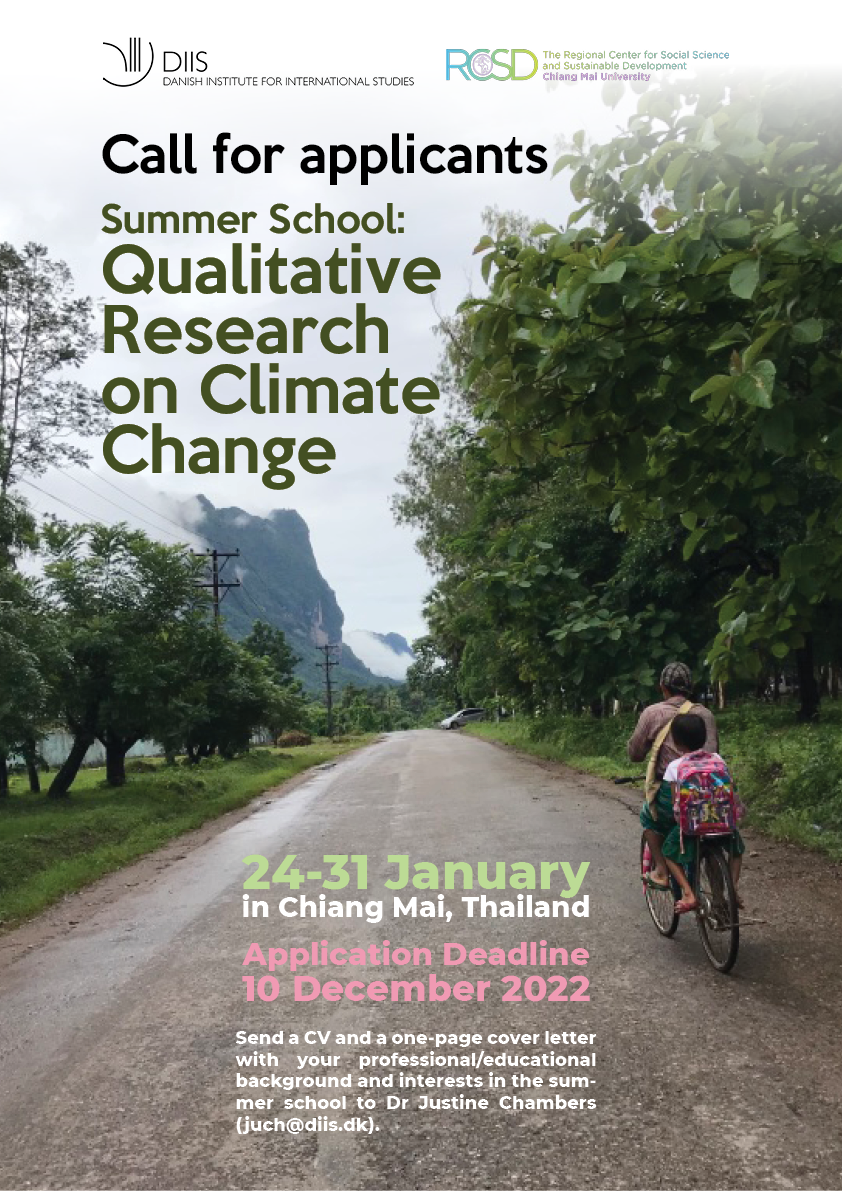Summer School: Qualitative Research on Climate Change
hosted by the Regional Center for Social Science and Sustainable Development, Chiang Mai University, from 24-31 January 2023
Background and introduction to the summer school
The purpose of the summer school is to equip participants with a deeper understanding of the current qualitative research and social science debates on climate change. The summer school will cover key concepts, themes and literature from the social sciences on climate change, with a particular focus on how local communities are responding and adapting to climate change in Myanmar, Thailand and Vietnam.
Content
The summer school program will be organised and run by scholars from the Danish Institute for International Studies’ MyClimate project. It will also include guest lectures and online resources. The format will include 4 days of lectures, 2 days of interactive field research and 2 days of individual exercises and presentations on the part of participants.
Activities
- Pre-workshop assignments for participants, including a 1500 word literature review and guided preparation of issues and policies relevant to climate change in participants’ own countries.
- Mini-lectures and practical exercises throughout the program.
- Lectures by invited speakers on key issues relevant to research on climate change in mainland Southeast Asia.
- Facilitator-led seminars on qualitative social science research on climate change.
- Two-day field program for participants to speak to communities and understand the complex issues and dynamics that drive climate change, including capitalism and state-led ‘development’.
Selection and Requirements
Graduate students, emerging and independent scholars, researchers and activists. The ten-day program is run in an intensive format and requires a good working knowledge of English language and professional interest in issues related to climate change, environmental protection and/or indigenous and customary forms of land management. Applications will be considered on their merit, and a balance will be sought to include participants with different professional backgrounds, ethnicities and genders.
Participants are required:
| To have access to a laptop. To prepare materials ahead of the summer school as set out by the instructors (approximately three days’ work). Details will be provided in early January. To commit to at least six hours per day during the ten days of the summer school (24-31 January)To join the field school with an open mind and preparedness to work collaboratively with participants from other countries, with diverse perspectives on issues related to climate change. |
Entitlements
The organisers will cover the cost of the course, meals and field expenses at no cost.* All program materials will be made available in electronic format. A certificate of attendance will be issued to all participants who fulfill the requirements of the course, including group and individual assessments.
*Funding will be considered for participants who live outside Chiang Mai for travel depending on financial need.
Key Dates
23 November 2022: Application Opens
10 December 2022: Application Deadline
15 December 2022: Acceptance Announcements
1-24 January 2023: Pre course readings and preparation
24-31 January 2023: Workshop and Field Research Trips
Application Details
Send a CV and a one-page cover letter outlining your professional/educational background and interests in attending the summer course to Dr Justine Chambers (juch@diis.dk).

